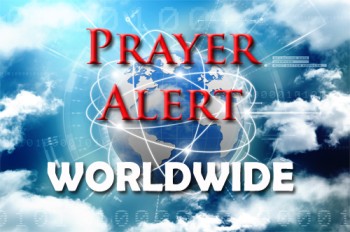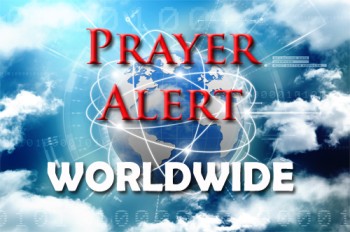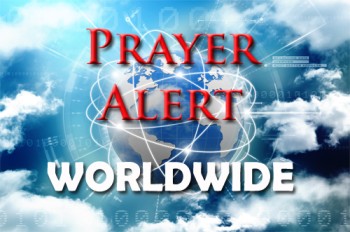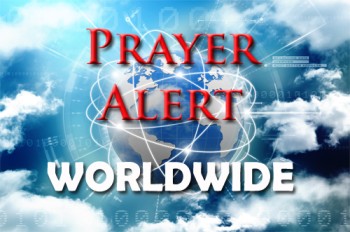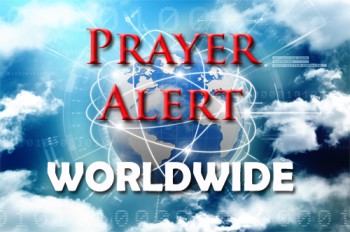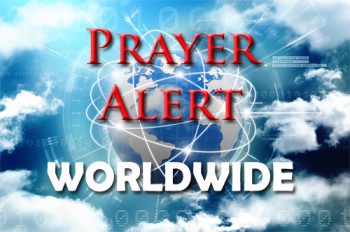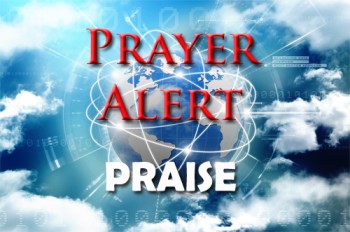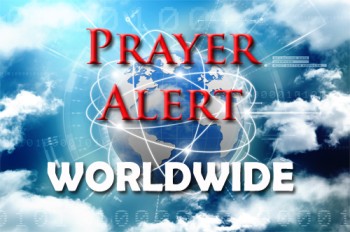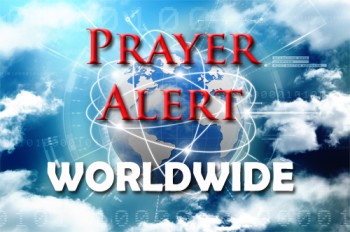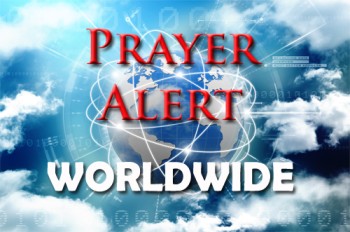Displaying items by tag: Africa
East Africa: heavy flooding causes many deaths and displacements
Heavy flooding in Kenya, after weeks of intense rain and flash floods, has left at least 103 people missing, with 71 confirmed dead. Most of the missing are from Mai Mahiu, near Nairobi, where on 29 April flooding near a railway bridge, caused by a clogged tunnel, caused at least 45 deaths. The country’s president William Ruto has ordered the military to help search and rescue efforts. Nearly 191,000 Kenyans have been displaced by the floods, which are said to have been exacerbated by the effects of El Niño. The government has established 52 displacement camps to provide temporary shelter, but with more rain forecast the situation may worsen. The floods have affected other countries: a week ago, Tanzania’s president said that 155 people had been killed and 200,000 displaced. See
Niger / Benin: oil starts to flow along pipeline
Despite strained diplomatic ties, Benin is hoping for revenue from transit duties and taxes on Nigerien oil passing through Sémè Kraké. The site marks the terminus of a 1,980km pipeline from Niger's Agadem oil fields; oil has started to flow along it, raising hopes for two thousand new jobs in Benin. The pipeline aims to transport 90,000 barrels per day, bolstering Niger's status as a regional oil player. In July 2022 a military coup in Niger disrupted optimism, leading to border closures by Benin in solidarity with ECOWAS sanctions. However, President Talon later eased restrictions to facilitate trade, signalling a desire for improved regional relations, even though Niger's junta has been prioritising ties with Burkina Faso and Mali rather than with Benin. Due to the new pipeline, Niger's oil production is set to rise significantly, with substantial reserves awaiting exploitation.
Africa: USA may need to improve relationships due to shortage of minerals
The USA may need to reassess its relationships with African nations as it faces a potential shortage of critical minerals essential for weapon manufacturing. This comes as it and its allies provide arms to conflict zones like Ukraine and Israel. In both cases, these include advanced missile systems which rely on critical minerals found in Africa. These include cobalt, sourced from the Democratic Republic of Congo, antimony from South Africa, and graphite (found in many countries). A study group has warned that a shortage of these minerals could hinder military capability and national security, impacting the arms race with China. In its policy towards Africa, the US has shown renewed interest in the DRC and Zambia through the rebuilding of the Lobito Corridor, a rail and road network which will link the two countries to Angola and straight to the Atlantic Ocean.
South Africa: illegal migration across porous border
In the town of Musina, Portie Murevesi, heavily pregnant, has found refuge after a brutal assault. She is one of many migrants undertaking perilous journeys to reach South Africa. Tales of violence, including rape and murder, are commonplace, but many people, driven by desperation, are risking their lives to seek better opportunities in South Africa. Officially, there are more than 2.4 million foreigners - nearly half of them Zimbabwean - living in the country, accounting for just over 3% of the population. But that figure does not include those who have entered illegally, and with a general election scheduled for the end of May, this has become a highly charged political issue. Although the authorities say they are tightening security, it is an enormous task. John epitomises the struggle for survival as he resorts to smuggling watermelons across the porous border because they fetch a far higher price than in Zimbabwe.
Senegal: smooth presidential election a ‘victory for democracy’
Senegal's president Macky Sall has hailed the electoral win by opposition candidate Bassirou Diomaye Faye as a victory for democracy. Faye defeated former prime minister Amadou Ba and 19 other candidates in the presidential election on 24 March. International and regional observers have affirmed the election's fairness and peaceful conduct. In an address to supporters, Faye pledged to govern with humility, transparency, and a firm stance against corruption. The priorities which he has outlined are national reconciliation, rebuilding institutions, reducing living costs, and inclusive policy consultations. His victory marks a significant shift in Senegal's political landscape, highlighting the country's dedication to democratic principles and aspirations for positive change under new leadership. Sall's term ends on 2 April.
India to prosecute 35 Somali pirates
India is set to prosecute 35 Somali pirates captured after freeing a ship which they had hijacked on 14 December in the Northern Arabian Sea. The rescue operation, lasting about 40 hours, involved drones, navy vessels, and marine commandos.The pirates, due to arrive in India soon, will face legal action, although specific charges were not disclosed. This was the first commercial ship hijacking by Somali pirates since 2017, but another ship was hijacked on 12 March. India has bolstered its naval presence internationally, and aims to police the Gulf of Aden to prevent Houthi attacks on ships linked to Israel. The Houthis, controlling most of Yemen, have threatened to target ships until Israel halts what they term as genocide in Gaza.
African prisoners transformed by Gospel message
In a notorious African prison, 166 death-row inmates existed in a state of despair; but a team of missionaries and medical professionals were undeterred, ready to offer both healthcare and the gospel. Believing in the transformative power of faith, they planned to preach and provide individual counselling during medical checks. They were driven by a conviction that even these forsaken souls deserved to hear the message of hope. As the Gospel was shared, hardened faces softened with tears, signalling an emotional and spiritual awakening among the inmates. This moment marked a shift from hopelessness to a glimmer of hope and understanding. The medical consultations became opportunities for inmates to personally embrace faith, with many choosing to commit to a new spiritual path. The next day, the prison warden observed a profound change. Inmates were deeply engaged in reading the Bible and discussing its teachings, transforming the prison's atmosphere to one of joy and community.
Sudan: army gains control of broadcasting headquarters
Sudan's army has reclaimed the state broadcaster's headquarters in Omdurman, marking a symbolic victory in its eleven-month civil war against the Rapid Support Forces (RSF). The RSF had held the building since the conflict began but had not been able to transmit from it; state television has continued to show pro-army content, broadcast from elsewhere in the country. Despite UN calls for a ceasefire during Ramadan, intense fighting has continued in several parts of Khartoum. This recapture signifies a major setback for the RSF, which had used the headquarters as a stronghold. The conflict, stemming from disagreements between military and RSF leaders over a political transition to civilian rule, has displaced millions, devastated Khartoum, and triggered ethnic violence in Darfur. International efforts to broker peace have faltered, and the humanitarian toll remains dire, with warnings of growing hunger and continued displacement.
South Africa: man arrested after murder of three Coptic priests
South African police have arrested a suspect following the murder of three Egyptian priests on 12 March. The Coptic Orthodox Church said that they had been subjected to a criminal attack in a monastery in Cullinan. The 35-year-old man is expected to appear before Cullinan magistrates' court on 14 March. All three victims were found with stab wounds, while a fourth victim who survived said that he was hit on the hand by an iron rod before fleeing and hiding in one of the rooms. The police said the suspect left without taking any valuable items or properties from the place, and his motive is unknown at this stage.
Africa: cholera rages, oral vaccine supply runs dry
The world’s oral cholera vaccine stockpile has run dry, while at least 16 countries face outbreaks. Africa experiences a disproportionately high cholera mortality rate; in three countries the number of cases quadrupled in one year, and 1,600 died. Manufacturers have already allocated upcoming vaccine doses elsewhere until mid-March, with growing demand surpassing supply. Médecins Sans Frontières (MSF) is calling for more manufacturers, and more technical support to help them. The shortage leaves communities unprotected, heightening the risk of preventable cholera deaths. This scarcity echoes past challenges, for example when a temporary one-dose vaccination measure was adopted in 2022. The current outbreaks are exacerbated by humanitarian crises and environmental factors like droughts, floods, and inadequate public infrastructure.
